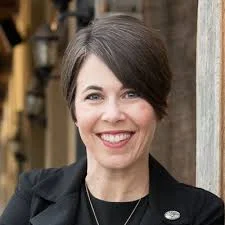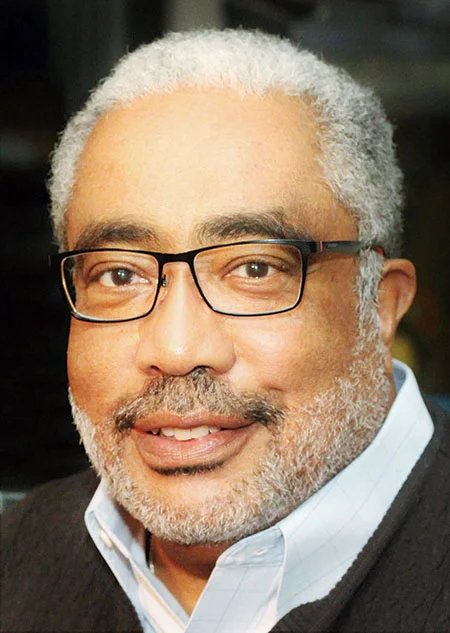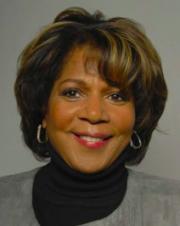data for politics #34: Give Smart 6: Run for Something and Future Now
Friends,
$750,000.
We still can’t believe it. You’ve given nearly a million dollars to strategically chosen state legislative candidates who could be the difference between Democratic and Republican control over the lives of millions of people.
Your money isn’t lining the pockets of consultants, or contributing to a television air war of attrition. Most of it goes to voter contact, or is the difference between a candidate running a radio/cable ad or not at all.
We’re rolling out one last round of candidates and asking for a last infusion of money that could mean the difference for these candidates.
We asked our friends at Run For Something (@runforsomething) and Future Now (@FutureNowUSA) to give us eight more candidates. Both organizations are committed to electing progressives to state legislatures across the country.
As with before, these races were carefully vetted to ensure your money goes as far as possible.
So here at Data For Progress we’re making a simple request - spend $80 across these eight candidates. We’ve set up an ActBlue page for you to make those donations, and you can find more about each of the candidates below. We’re calling it our Give Smart initiative. No portion of the contributions to Give Smart goes to Data for Progress. All the money supports candidates.
You can support Data for Progress here. These contributions will not support the Give Smart candidates, but rather general operating support for the think tank.
Support Run for Something here.
Support Future Now here.
Our goal is to hit $1,000,00 raised across all of the Give Smart campaigns. We’re more than three-fourths of the way there. With your help we can do it.
Bobby (@BobbyBigWheel) and Sean (@SeanMcElwee)
Future Now Candidates
Jennifer Pawlik, Arizona House
With the GOP in charge of the Arizona legislature, the quality of Arizona public schools has plummeted, hospitals have been forced to shutter, and programs for the elderly and developmentally disabled have been decimated. They have stood by as nearly a quarter of Arizona’s children live in poverty, allowed teacher pay to wallow at 49th in the country, and precipitated a massive teacher exodus, with thousands of positions left unfilled every year. Who better to help solve this crisis than a teacher. Jennifer Pawlik has been a teacher for nearly two decades whose proven commitment to the Arizona education system and her community gives her a unique perspective on how Arizona can do better for its kids. She’s running in a district that Hillary Clinton lost by less than 4 points (and Jennifer nearly came within 3 points of the House seat when she ran in 2016 - a very Trumpy year).
Laurie Pohutsky, Michigan House
If Democrats take the Michigan House, it will be because of women. In fact, 58 of Michigan’s 110 Democratic House candidates this year are women – that’s over 50%. One of those amazing women is Laurie Pohutsky. She is a lifelong Michigander who saw at an early age that lawmakers can have a big impact when her Teamster father went to work for the city of Dearborn Heights. Did we mention she is a microbiologist, too? Talk about someone who knows evidence-based policies should really be the only type of policies. With a powerful incumbent not seeking re-election to this seat, and a district Debbie Stabenow has won by 10 points, Laurie has a strong chance with our help.
Ron Wesson, North Carolina House
The election of Democratic Governor Roy Cooper in 2016 shows that North Carolina is ready for a change. But that change can’t happen without change in the legislature. The existing State House supermajority has refused to expand Medicaid, and drawn partisan and racial gerrymanders that have been found unconstitutional – twice. Change can start in the State House, but Ron Wesson needs your help. Born and raised in rural Bertie County, Ron has served his neighbors as a County Commissioner and is running to bring the leadership Northeastern North Carolina deserves back to the state legislature. He’s running for an open, currently Republican seat where Cooper performed well, but in a large, rural district he needs help getting his message out.
Melanie Levesque, New Hampshire Senate
New Hampshire has a long history as a “purple” state (Hillary Clinton won the state by less than 3,000 votes), but that hasn’t stopped the current Republican majority from trying to make the NH Senate ground zero for a Trumpist resurgence. They blocked efforts to increase the state’s minimum wage and create a statewide paid family leave program. And they readily choose narrow special interests over the state's economic and environmental health, refusing to invest in renewable energy jobs. Take Sen. Kevin Avard, who has opposed paid family and medical leave and voted vote against prohibiting gender discrimination. Here’s the antidote and the inspiration: Melanie Levesque, a small business owner, women’s rights advocate and former State Representative who would be the first African American elected to the State Senate. Melanie is as tough as they come - when she was 18, her mother passed, and she took over custody of her siblings and raised them on her own.
Domingo DeGrazia, Arizona House
The Arizona legislature has made it harder for working people from modest backgrounds to get ahead. They are working to roll back paid sick leave, even though it was recently approved by a majority of Arizona voters. Luckily, there is a significant opportunity to change all this and generate upballot momentum in crucial gubernatorial and federal races. The guy to do it? Domingo DeGrazia. He is an attorney with over a decade of experience in juvenile court who has witnessed first hand the challenges facing the foster care system and believes he can be the one to fix them. Great candidate, great district: In 2016, Clinton won the district with with 52.9% of the vote and in 2014, David Garcia, the top performing statewide Democrat since 2010 (and this year’s gubernatorial candidate) got 52% of the vote.
Run for Something Candidates
Lauren Friedman, Ohio State Senate
Lauren is a US Naval Academy graduate who served two deployments as part of Operations Iraqi and Enduring Freedom. When she completed her military service, she returned to Stark County, Ohio. She earned a Master's degree in Rehabilitation Counseling and worked for eleven years in social services, advocating for marginalized people in her community. Following the 2016 election, she helped found a local activism group. She is running for office now as a continuation of her work both in activism and public service; she wants to amplify the voices of people who are often ignored.
Sydney Batch, North Carolina House of Representatives
Sydney Batch is a mother, wife, lawyer, social worker, and child welfare advocate who was raised in North Carolina. She is a triple Tar Heel, graduating with her undergraduate, MSW, and her JD from UNC-Chapel Hill. Sydney and her husband opened their own law practice upon graduation. She is a mother to two wonderful sons that keep her life very interesting. Sydney decided to run because she wants to make a difference for those people who feel stressed, and to work with them through our common shared values to make a better North Carolina.
Jennifer O’Mara, Pennsylvania State House
An educator, advocate, and non-profit administrator at the University of Pennsylvania, Jennifer O'Mara is running for the Pennsylvania state House because she believes that government can be a force for good and has the power to make a positive change in peoples' lives. Unlike the career politicians, Jennifer knows what it's like to rely on government for the things many of us take for granted. When she lost her father to gun-suicide at the age of 13, her family would not have survived without public schools, programs like CHIP, or the benefits that accompanied her mom's union job as a school bus driver. As state Representative, Jennifer will fight for working class people, women, young people, and people of color because it's time that everyone has a seat at the table.









